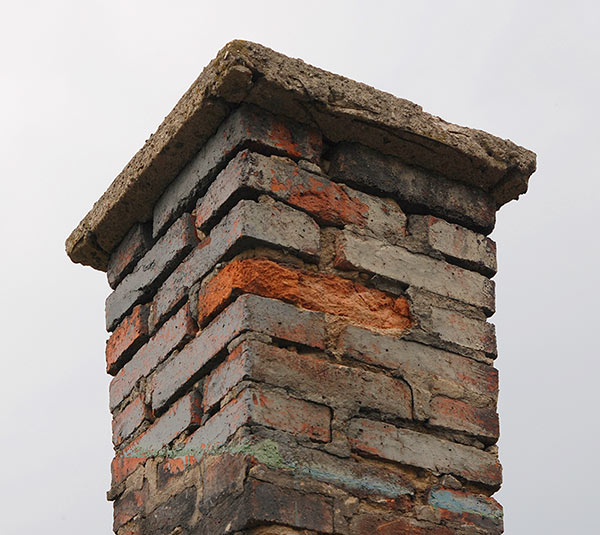 There are many potential problems that can arise with a chimney, and water is one of the major causes of costly troubles. Besides the fact that an annual chimney inspection is recommended as a basic safety measure, another reason an inspection by a professional chimney sweep is important is so that moisture problems can be identified before they do extensive damage. The following are three major moisture-related problems that are common in chimneys.
There are many potential problems that can arise with a chimney, and water is one of the major causes of costly troubles. Besides the fact that an annual chimney inspection is recommended as a basic safety measure, another reason an inspection by a professional chimney sweep is important is so that moisture problems can be identified before they do extensive damage. The following are three major moisture-related problems that are common in chimneys.
Causes of Chimney Moisture Damage
Spalling. Because of the material they are made with, bricks absorb moisture. During the winter, the water trapped inside each brick freezes and thaws as temperatures change; and the result can be spalling. “Spalling” is when the surface of the brick breaks off or becomes damaged.
Spalling is more than an aesthetic issue. Bricks can become useless as structural components if there is enough breakage that the bricks no longer offer support. Watch for exterior damage to your chimney, such as bits of brick around the chimney base, to avoid the need for expensive masonry repairs.
Rusting and Liner Deterioration. If water seeps into the chimney, it can cause the damper or firebox to rust. When there is enough moisture to cause rusting, there should be a complete chimney inspection to determine the extent of the water damage, since not all damage is immediately visible.
Another problem that moisture can cause is damage to the tile liner. If there is a crack in the flue, it should be repaired immediately, anyway; but if moisture seeps into the cracks, it can also cause damage to ceilings and walls.
Other possible problems could be that there is leaking around the chimney crown or flashing. If these components of the chimney have deteriorated or been damaged, our chimney professionals can help.
Damaged Mortar. Repeated cycles of freezing and thawing can damage the mortar between the bricks on the chimney. Damaged mortar leads to deterioration of the bricks, including causing large cracks.
Excess moisture in a home especially in the chimney can lead is not a good thing and leads to different issues. It is very important to identify the cause and there are numerous reasons it is never a good idea to put off the repair of a leak, especially a chimney leak. Moisture caused by leaks creates numerous problems, and some are very costly to repair and are bad for your health. The following are among the problems caused by excess moisture from the leaky chimney:
Threaten the home finish. It destroys or seriously damages every type of finish, including plaster, wallpaper, paneling, and paint if the water gets into the walls.
The occurrence of mold. Mold thrives on moisture. One thing that can happen is that you could end up with moldy wood if there is a leak in your chimney, which can eventually cause a negative affect the health of everyone in the home.
Rotten wood. Moisture causes wood to rot. Not only will the wood need to be replaced, but the moist wood attracts carpenter ants, rodents, and dreaded termites.
Water leaks are not static. The moisture easily spreads around an causes damage to other parts of your home. Thus, prevention is important When you watch for early signs of moisture damage and get an annual chimney inspection, you can avoid getting stuck with expenses related to destructive water damage.
